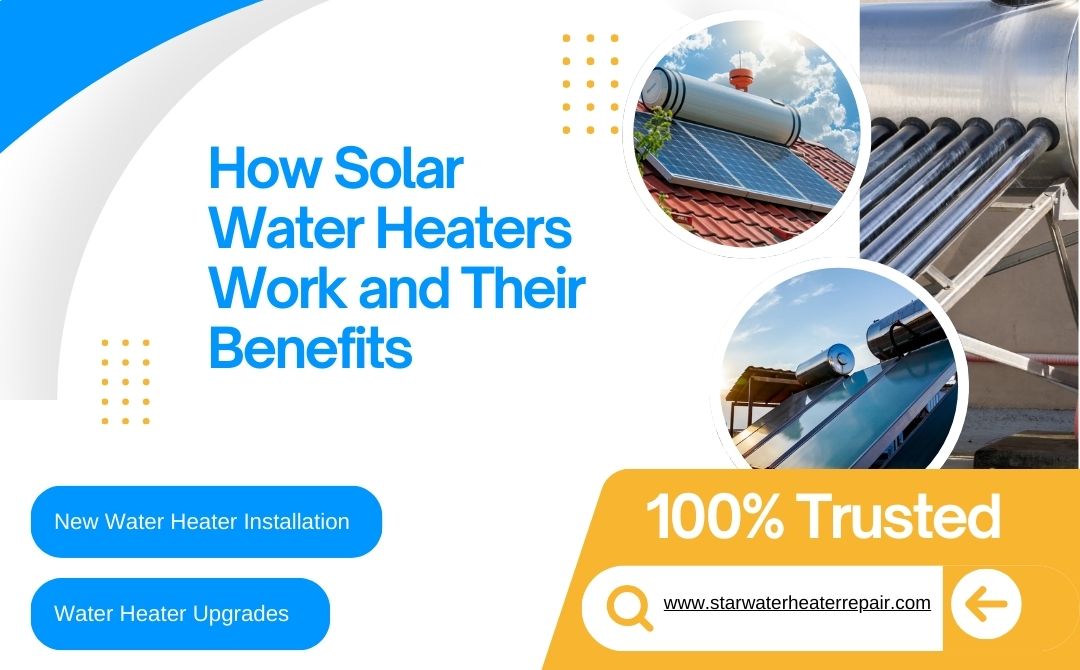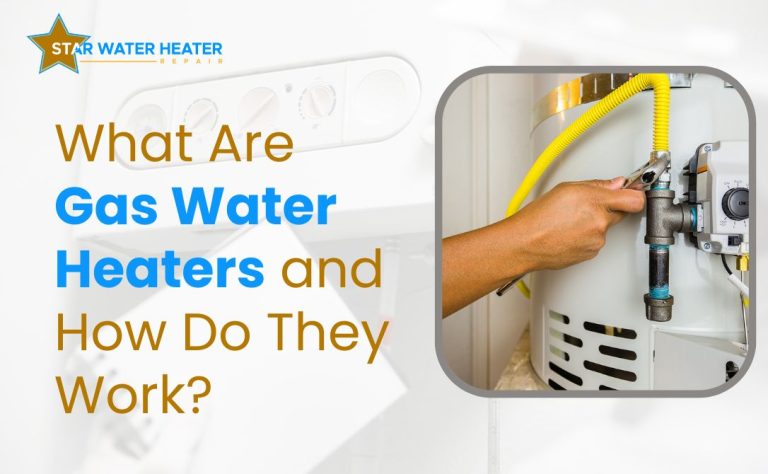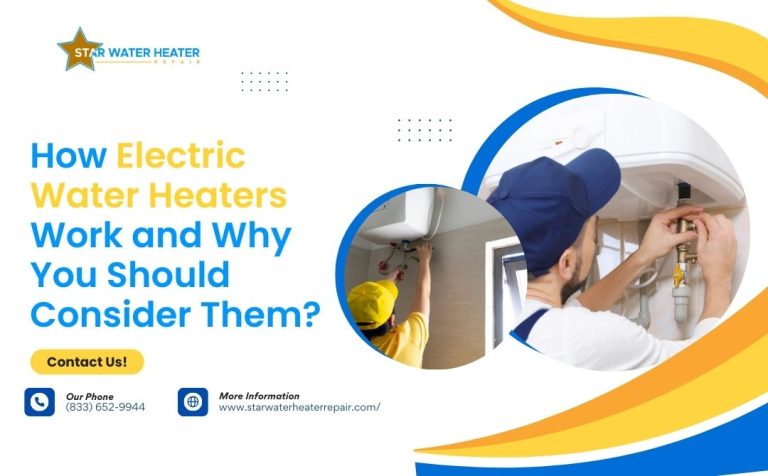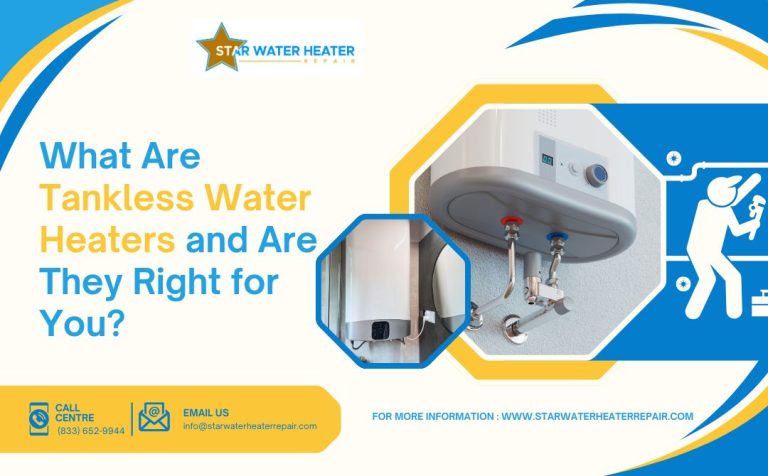How Solar Water Heaters Work and Their Benefits?
Solar water heaters harness sunlight to heat water efficiently, providing an eco-friendly alternative to traditional systems. By switching to solar, households can lower their energy bills by an average of $100 to $200 annually while significantly reducing their carbon footprint. With over 1.5 million U.S. households already using solar water heating systems, it’s clear that this technology is both effective and popular.
These systems work efficiently even in colder climates, making them a versatile solution for modern homes. In this blog, we’ll explore how solar water heaters work and the incredible benefits they offer. It’s time to say goodbye to traditional electric water heaters and embrace a cleaner, cost-effective future!
How Do Solar Water Heaters Provide Hot Water Using Solar Energy?
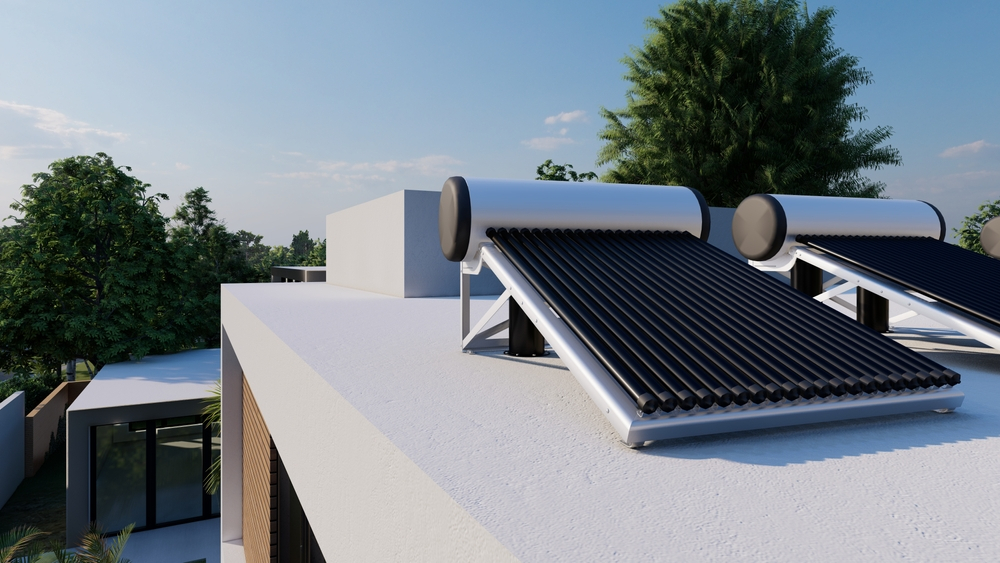
Solar water heaters capture sunlight to heat water. They use solar collectors on rooftops. Cold water flows through pipes in these collectors. As the sun heats the collectors, the water inside gets warm. The heated water then moves to a storage tank. From there, you can use it for bathing and washing.
But there’s more. In active systems, pumps circulate water. In passive systems, gravity does the work. Heat exchangers help transfer heat efficiently. Even in cold climates, these systems perform well. They provide warm water all year round.
Some systems even use heat pump water heaters. They use a heat pump to heat water, which can be more efficient.
Types of Solar Water Heaters Used in the USA
In the USA, various types of solar water heaters are available to suit different climates, budgets, and household needs. Here’s a closer look at each type and its unique advantages.
1. Flat-plate collector Solar Water Heaters
Flat-plate collector solar water heaters are one of the most common and cost-effective systems in the USA. These systems consist of a flat, insulated box with a dark absorber plate and transparent cover, where sunlight heats the water or heat transfer fluid running through pipes.
Benefits:
- Affordable and suitable for most budgets.
- Durable with a simple design, requiring minimal maintenance.
- Effective in moderate climates, heating large volumes of water.
- Ideal for residential use due to its simplicity and reliability.
2. Evacuated Tube Collector Solar Water Heaters
Evacuated tube collector systems are known for their high efficiency, especially in colder climates. These systems use rows of glass tubes with an inner heat absorber, and a vacuum between the tubes provides excellent insulation, which helps retain heat.
Benefits:
- Very efficient in retaining heat, even in freezing conditions.
- Perfect for high hot water demand due to excellent insulation.
- Works well in both hot and cold climates.
- Highly durable and efficient, although slightly more expensive than other options.
3. Integral Collector-Storage (ICS) Systems
Integral Collector-Storage (ICS) systems, also called batch systems, combine the solar collector and storage tank in one unit. Water is heated in the collector during the day and stored until needed, making it simple yet effective.
Benefits:
- Cost-effective and easy to install with a simple design.
- Minimal maintenance required due to lack of moving parts.
- Suitable for mild to warm climates where temperatures don’t drop below freezing.
- Compact design, combining collection and storage in one unit, saving space.
4. Thermosiphon Solar Water Heaters
Thermosiphon systems are passive solar water heaters that use the natural movement of heat (hot water rises) without pumps. The system positions the water storage tank above the solar collector, allowing heated water to naturally move upward into the tank.
Benefits:
- Energy-efficient with low operating costs.
- Reliable in warmer regions, especially with a gravity-fed water system.
- Minimal maintenance due to the absence of pumps and moving parts.
- Simple installation, as it uses gravity instead of electricity to circulate water.
5. Drain-Back Solar Water Heating Systems
Drain-back systems are active solar water heaters designed for colder climates. They use a heat transfer fluid, which drains back into a storage tank automatically when the system shuts off, preventing pipes from freezing.
Benefits:
- Ideal for freezing climates, as it prevents freezing in pipes.
- High efficiency without the need for antifreeze solutions.
- Low maintenance and long-lasting performance.
- Reduces the risk of pipe damage and freezing during cold weather.
How Much Can You Reduce Your Electricity Costs?
Now, let’s talk savings. Solar water heaters can cut your energy bills significantly. They reduce electricity bills by using the sun’s power instead of grid electricity. By heating water with solar energy, you lower your energy costs. In fact, you might save up to 50% on your hot water heating expenses. Over time, these savings add up, making solar water heaters a smart investment.
According to the Department of Energy, replacing a current water heater with a solar-powered system can significantly reduce energy costs. Unlike traditional water heaters, solar systems use a hot water storage tank to keep water warm throughout the day. This setup helps households save on electricity while enjoying reliable hot water.
Summing Up!
Solar water heaters offer an efficient, eco-friendly way to meet your hot water needs while reducing energy bills and minimizing environmental impact. Whether you’re in a warm or cold climate, there’s a solar water heater suited to your home. With several types available, it’s easier than ever to find a reliable system that reduces energy consumption and provides year-round comfort.
At Star Water Heater, we specialize in helping homeowners make the switch to sustainable heating solutions. Our team can guide you through selecting the perfect system and handle every step of installation. Don’t wait—contact Star Water Heater today and start enjoying clean, cost-effective hot water.

